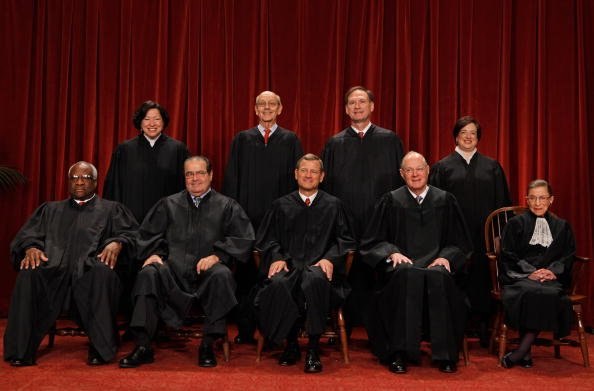Even before this week's controversial decisions, attitudes towards the Supreme Court were split
Opinion of the United States Supreme Court was divided – even before Monday’s decision in favor of Hobby Lobby’s religious right not to cover certain types of contraception in its employee health care package. That decision dealt a blow to the Administration’s mandate that required contraceptive coverage for women.
The latest Economist/YouGov Poll finds the even split in assessments of the Court crosses party boundaries: Democrats and Republicans both have reasons to like and dislike it and its decisions. Democrats and Republicans are each closely divided in their assessment of the Court (with Republicans barely positive), and independents are decidedly negative.
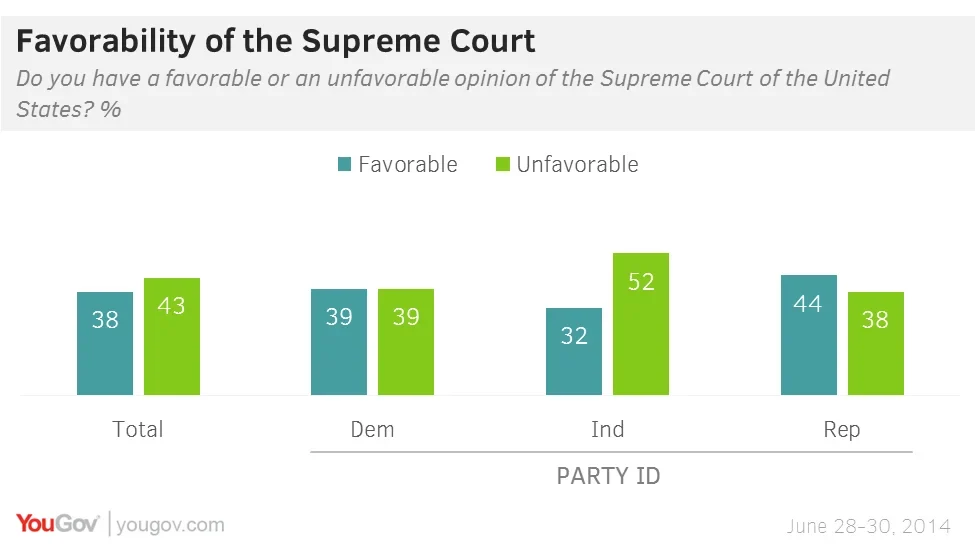
Court decisions can anger those on both sides, and often through rulings decided by the narrowest margins. The decision that the Affordable Care Act was constitutional angered Republicans: in an Economist/YouGov poll conducted after that ruling, half as many Republicans said the Court was the institution they trusted the most as did so before the ruling. Democrats have criticized decisions about campaign financing, although their dissatisfaction probably reached a peak with the Court’s 5-4 decision to end the 2000 manual recount in Florida, thus awarding Florida’s electoral votes – and the Presidency – to Republican George W. Bush.
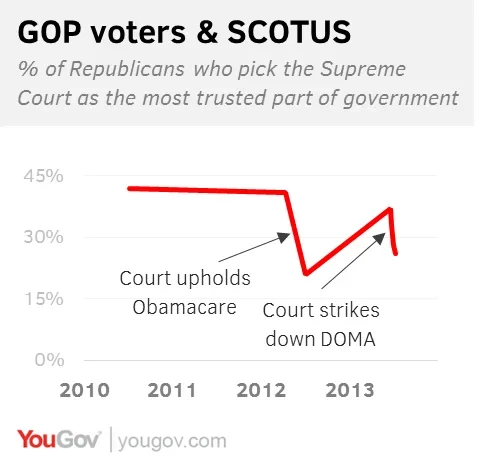
Although many recent Court decisions (including the Hobby Lobby case) have been decided by similar narrow margins, the Court has been able to make some decisions recently by unanimous vote. Two of last week’s 9-0 rulings get very different reactions from Americans.
In Riley v. California, the Court ruled that police could not search a cell phone seized from a person under arrest without a warrant. Whatever their partisanship, Americans approve of that ruling.
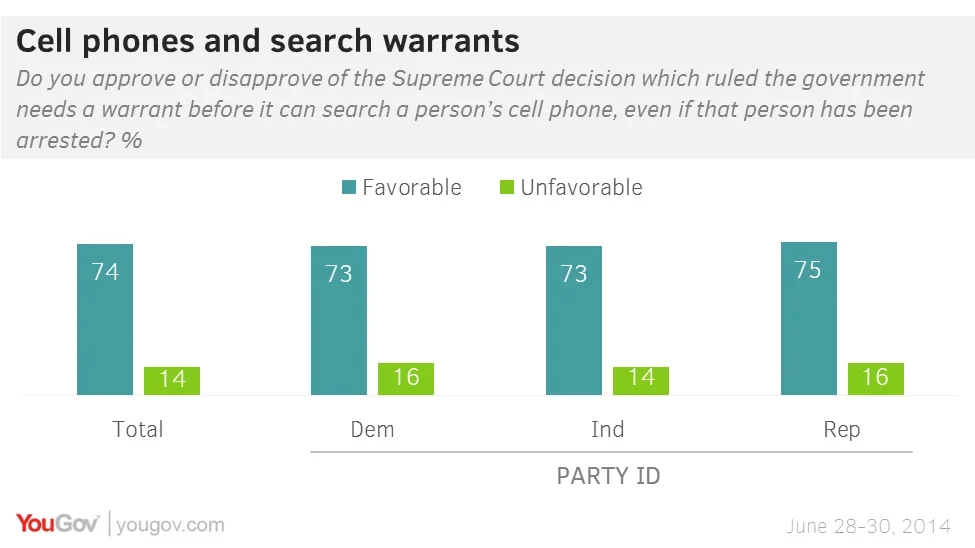
Republicans and independents are more likely than Democrats to strongly agree with the ruling, but about three in four across political boundaries approve.
But in a second case decided last week, McCullen v. Coakley, the justices ruled that a 35-foot buffer zone established around abortion clinics in Massachusetts violated the free speech rights of those who wished to protest against abortion. On this decision, Americans are very closely divided and partisan differences are clear, although one in four Republicans disapprove of the decision and three in ten Democrats approve.
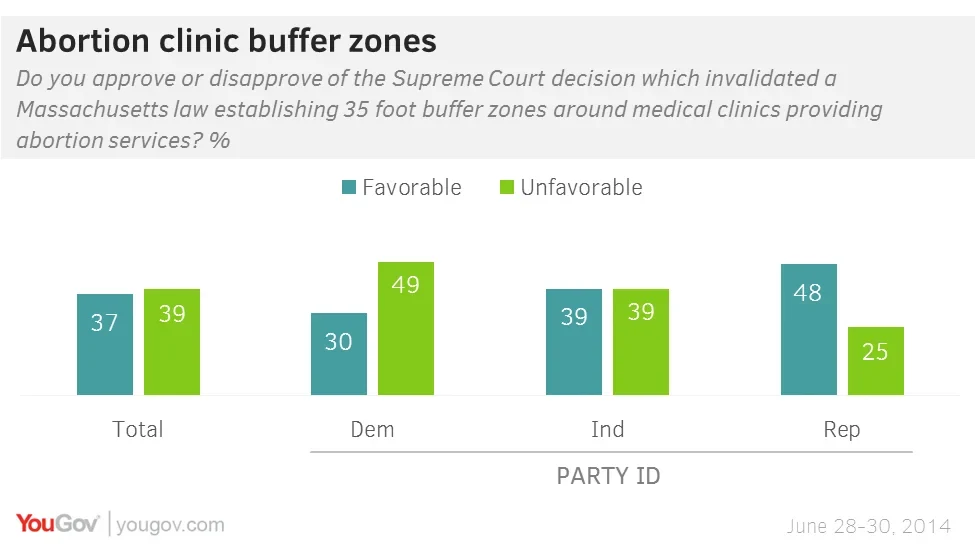
The Hobby Lobby decision is likely to meet with an even more strongly divided partisan response. In an earlier Economist/YouGov Poll, 70% of Democrats supported requiring employer health care plans to cover contraceptive services, while 70% of Republicans opposed that.
Supreme Court knowledge
Most Americans have only the basic facts about the Court itself: 59% in the poll were able to check that John Roberts is the Chief Justice of the Court. But only one in four was able to pick the justice who has served the longest. Antonin Scalia has served the longest (he was appointed by Ronald Reagan in 1986), but Americans say his liberal colleague, Ruth Bader Ginsberg, is the longest-serving Justice. She was named to the Court in 1993 by Bill Clinton, and is only the fourth longest-serving Justice (Anthony Kennedy and Clarence Thomas also were nominated before her).
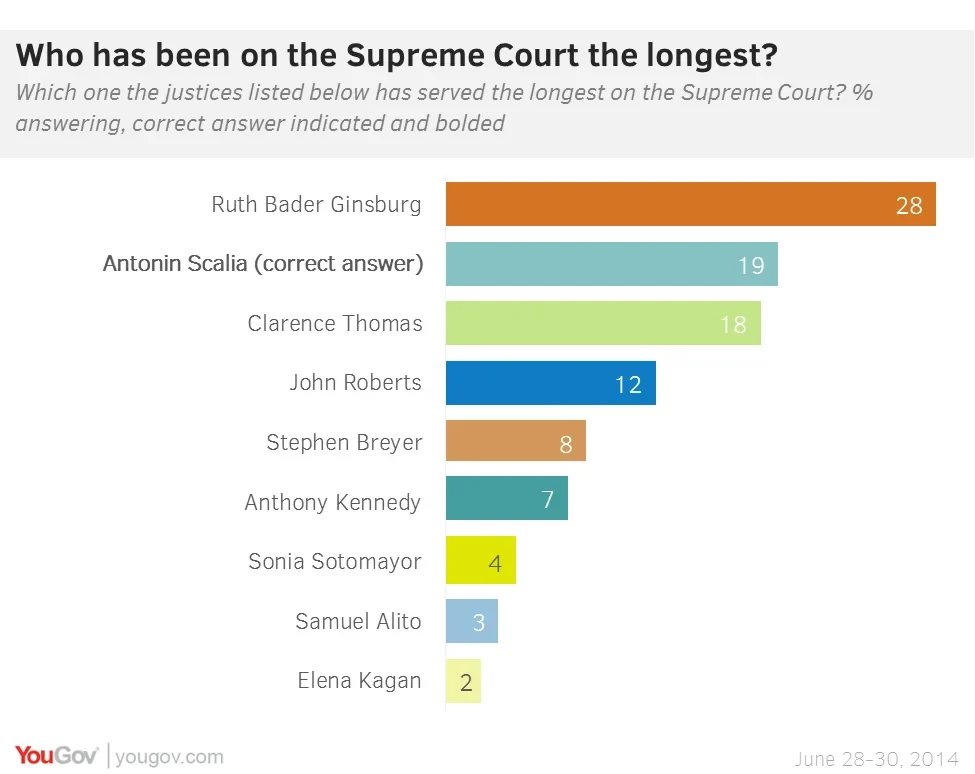
Republicans and Democrats are equally unsure as to who is the longest-serving Justice.
Image: Getty
Full results can be found here.
Economist/YouGov poll archives can be found here.
